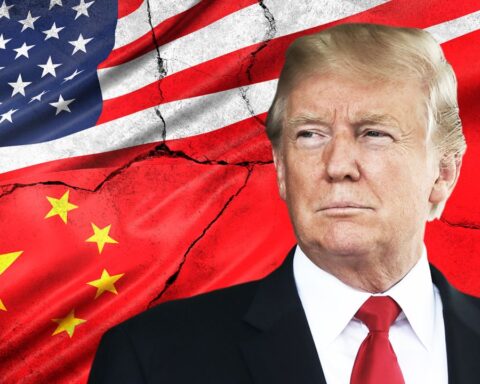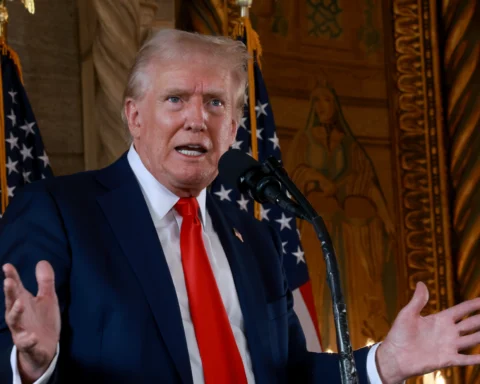A complaint and arrest warrant were unsealed today in federal court in Brooklyn charging Xinjiang Jin, also known as “Julien Jin,” with conspiracy to commit interstate harassment and unlawful conspiracy to transfer a means of identification. Jin, an employee of a U.S.-based telecommunications company (Company-1) who was based in the People’s Republic of China (PRC), allegedly participated in a scheme to disrupt a series of meetings in May and June 2020 held to commemorate the June 4, 1989 Tiananmen Square massacre in the PRC. The meetings were conducted using a videoconferencing program provided by Company-1, and were organized and hosted by U.S-based individuals, including individuals residing in the Eastern District of New York. Jin is not in U.S. custody.
“No company with significant business interests in China is immune from the coercive power of the Chinese Communist Party,” said Assistant Attorney General for National Security John C. Demers. “The Chinese Communist Party will use those within its reach to sap the tree of liberty, stifling free speech in China, the United States and elsewhere about the Party’s repression of the Chinese people. For companies with operations in China, like that here, this reality may mean executives being coopted to further repressive activity at odds with the values that have allowed that company to flourish here.”
“The FBI remains committed to protecting the exercise of free speech for all Americans. As this complaint alleges, that freedom was directly infringed upon by the pernicious activities of Communist China’s Intelligence Services, in support of a regime that neither reflects nor upholds our democratic values,” said FBI Director Christopher Wray. “Americans should understand that the Chinese Government will not hesitate to exploit companies operating in China to further their international agenda, including repression of free speech.”
“The allegations in the complaint lay bare the Faustian bargain that the PRC government demands of U.S. technology companies doing business within the PRC’s borders, and the insider threat that those companies face from their own employees in the PRC,” said Acting United States Attorney Seth D. DuCharme. “As alleged, Jin worked closely with the PRC government and members of PRC intelligence services to help the PRC government silence the political and religious speech of users of the platform of a U.S. technology company. Jin willingly committed crimes, and sought to mislead others at the company, to help PRC authorities censor and punish U.S. users’ core political speech merely for exercising their rights to free expression. The charges announced today make clear that employees working in the PRC for U.S. technology companies make those companies—and their users—vulnerable to the malign influence of the PRC government. This Office will continue working tirelessly to protect against threats to the free expression of political views and religious beliefs, regardless whether those threats come from inside or outside the United States.”
Mr. DuCharme and Mr. Demers also extended their thanks and appreciation to Company-1 for its cooperation in the government’s ongoing investigation.
According to the complaint, Jin served as Company-1’s primary liaison with PRC law enforcement and intelligence services. In that capacity, he regularly responded to requests from the PRC government for information and to terminate video meetings hosted on Company-1’s video communications platform. Part of Jin’s duties included providing information to the PRC government about Company-1’s users and meetings, and in some cases he provided information – such as Internet Protocol addresses, names and email addresses – of users located outside of the PRC. Jin was also responsible for proactively monitoring Company-1’s video communications platform for what the PRC government considers to be “illegal” meetings to discuss political and religious subjects unacceptable to the Chinese Communist Party (CCP) and the PRC government.
As alleged in the complaint, between January 2019 to the present, Jin and others conspired to use Company-1’s systems in the United States to censor the political and religious speech of individuals located in the United States and around the world at the direction and under the control of officials of the PRC government. Among other actions taken at the direction of the PRC government, Jin and others terminated at least four video meetings hosted on Company-1’s networks commemorating the thirty-first anniversary of the Tiananmen Square massacre, most of which were organized and attended by U.S.-based participants, such as dissidents who had participated in and survived the 1989 protests. Some of the participants who were unable to attend these meetings were Company-1 customers in Queens and Long Island, New York who had purchased subscriptions to Company-1’s services, and therefore entered into service agreements with Company-1 governed by its Terms of Service (TOS).
Jin, officials from the PRC government and others allegedly collaborated to identify meeting participants and to disrupt meetings hosted on Company-1’s U.S. servers, at times creating pretextual reasons to justify their actions to other employees and executives of Company-1, as well as Company-1’s users themselves. In particular, in May and June 2020, Jin and others acted to disrupt meetings held on the Company-1 platform to discuss politically sensitive topics unacceptable to the PRC government by infiltrating the meetings to gather evidence about purported misconduct occurring in those meetings. In fact, there was no misconduct; Jin and his co-conspirators fabricated evidence of TOS violations to provide justification for terminating the meetings, as well as certain participants’ accounts. Jin then tasked a high-ranking employee of Company-1 in the United States to effect the termination of meetings and the suspension and cancellation of user accounts.
As detailed in the complaint, Jin’s co-conspirators created fake email accounts and Company-1 accounts in the names of others, including PRC political dissidents, to fabricate evidence that the hosts of and participants in the meetings to commemorate the Tiananmen Square massacre were supporting terrorist organizations, inciting violence or distributing child pornography. The fabricated evidence falsely asserted that the meetings included discussions of child abuse or exploitation, terrorism, racism or incitements to violence, and sometimes included screenshots of the purported participants’ user profiles featuring, for example, a masked person holding a flag resembling that of the Islamic State terrorist group. Jin used the complaints as evidence to persuade Company-1 executives based in the United States to terminate meetings and suspend or terminate the user accounts of the meeting hosts.
PRC authorities took advantage of information provided by Jin to retaliate against and intimidate participants residing in the PRC, or PRC-based family members of meeting participants. PRC authorities temporarily detained at least one person who planned to speak during a commemoration meeting. In another case, PRC authorities visited family members of a participant in the meetings and directed them to tell the participant to cease speaking out against the PRC government and rather to support socialism and the CCP.
The charges in the complaint are allegations, and the defendant is presumed innocent unless and until proven guilty. If convicted of both charged conspiracies, Jin faces a maximum sentence of ten years in prison.
The investigation into this matter was conducted by the FBI’s Washington Field Office. The government’s case is being handled by the Office’s National Security and Cybercrime Section. Assistant U.S. Attorneys Alexander A. Solomon, Richard M. Tucker, David K. Kessler and Ian C. Richardson are in charge of the prosecution, with assistance from Trial Attorney Scott A. Claffee of the National Security Division’s Counterintelligence and Export Control Section.






